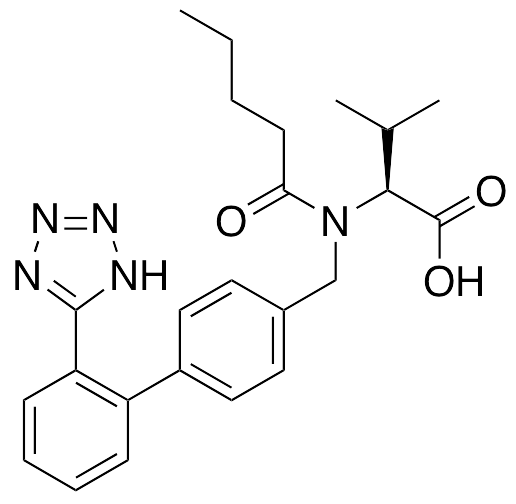Description
Valsartan is an angiotensin II (ATII) type 1 receptor (AT1) inhibitor that is clinically used to lower blood pressure and coronary resistance, and to decrease cardiac hypertrophy. Valsartan exhibits antihypertensive, cardioprotective, neuroprotective, anti-angiogenic, and anti-inflammatory activities. Inhibition of the ATII type 1 receptor results in inhibition of NF-κB and AP-1 activation. Valsartan induces autophagy through alteration of Akt/mTOR signaling in the rat heart, decreasing infarct size in an ischemia-reperfusion model. In neurons, valsartan promotes spinogenesis, increasing the number of AMPA receptors on the cell surface and altering levels of CaMKIIα and phospho-CDK5. In vivo, valsartan prevents induction of cardiotrophin-1, inhibiting increases in creatine kinase, atrial natriuretic peptide, and the heart weight/body weight ratio during heart failure. Additionally, inhibition of the angiotensin II type 1 (AT1) receptor prevents phosphorylation of Akt and decreases expression of VEGF in bone marrow stromal cells. Valsartan also inhibits release of pro-inflammatory cytokines such as IL-6, TNF-α, and IL-1β independent of its activity on ATII type 1 receptors.
